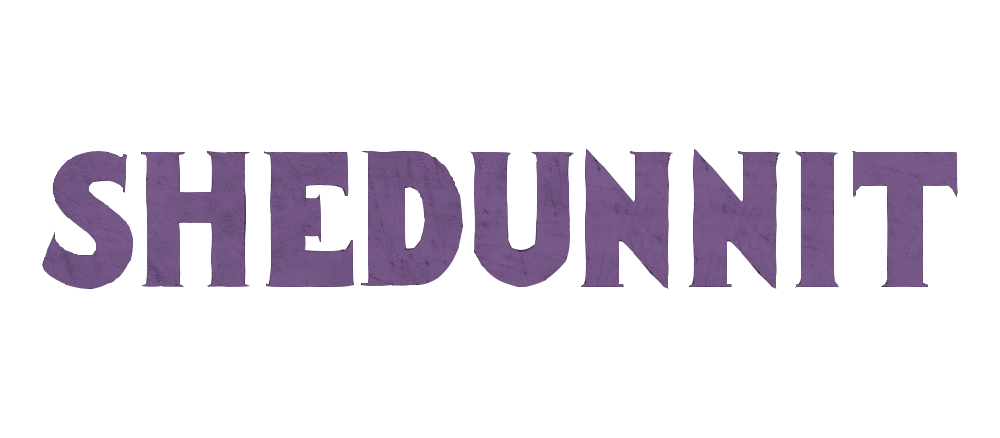Investigating a Death on Paper
Dear listener,
For today's new episode, I am venturing into the world of epistolary crime novels. This is the kind of mystery where the story is told through a series of letters or documents rather than a continuous prose narrative. There is a strong tradition of this format within crime fiction, from the Victorian era...
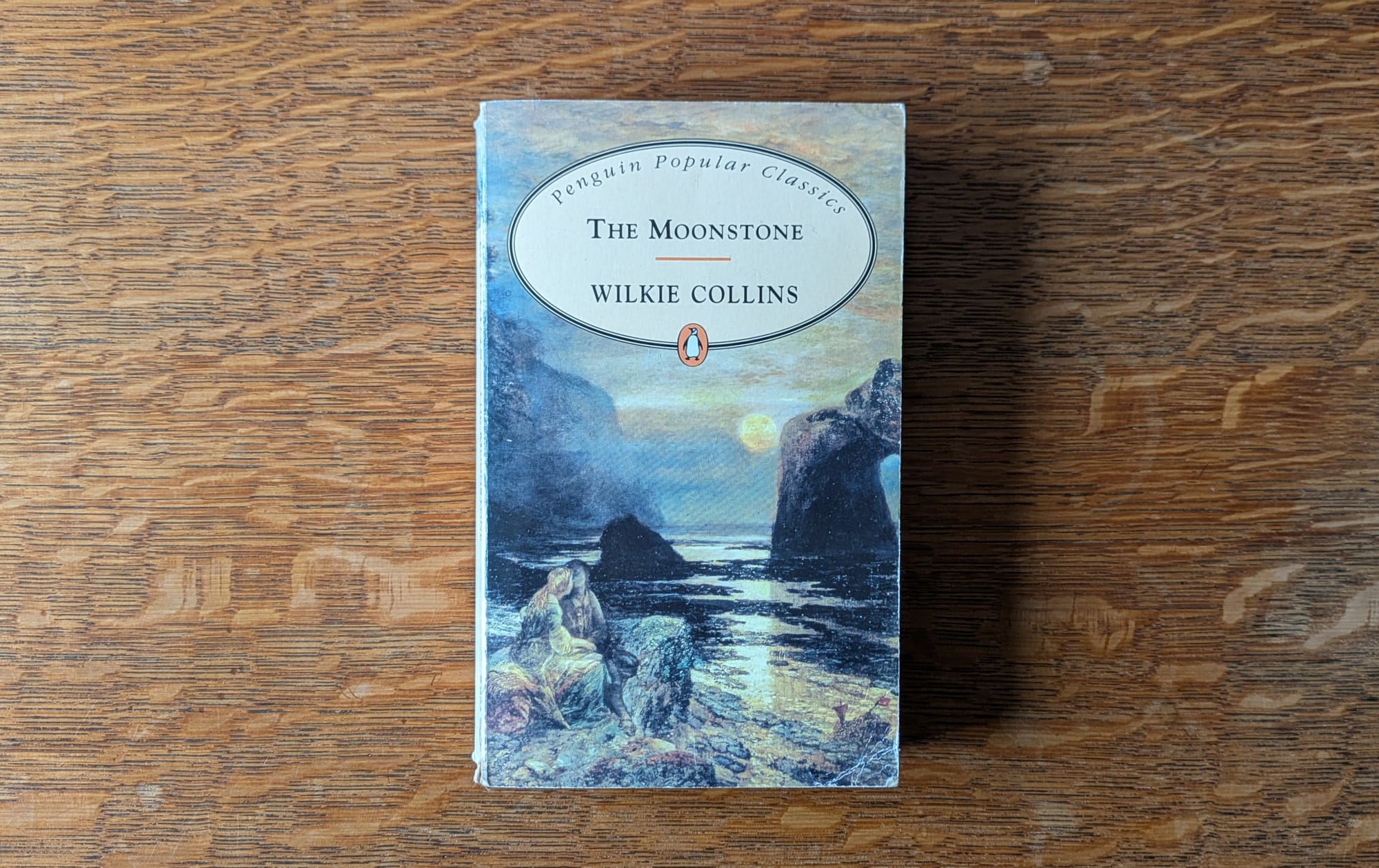
...to recent 2020s bestsellers like The Appeal by Janice Hallett. The attraction of this style of storytelling is the emphasis it puts on the game being played between writer and reader. And it's very much a game played on paper. With the primary evidence in the case — such as interview transcripts, diaries and newspaper cuttings — made available verbatim, the reader can take a much more active part in solving the mystery instead of just reading about the progress of the fictional detective. At the same time, creating and assembling the fragments gives the writer ample opportunity to conceal clues and create red herrings while appearing to share everything with the utmost transparency.
It's no surprise that this type of novel was particularly popular during the interwar golden age of detection, given that games and puzzles of all types were all the rage during these difficult years when people needed benign distractions. As I've previously covered on the podcast, crosswords were a big part of this puzzle craze, as were treasure hunts, board games and jigsaws. I think the recent success of novels like those of Janice Hallett, which are presented entirely as a dossier of documents, and puzzle books like Murdle, point to the fact that we are once more coping with hard times by immersing ourselves in fictional riddles and mysteries.
One of the things I came to enjoy about epistolary crime novels as I was working on this episode was the visual variety that the format offers. And the newsletter offers me the chance to showcase some of my favourite examples!
Let's look first at Death on the Down Beat by Sebastian Farr, which is the book I teased at the end of last week's newsletter.
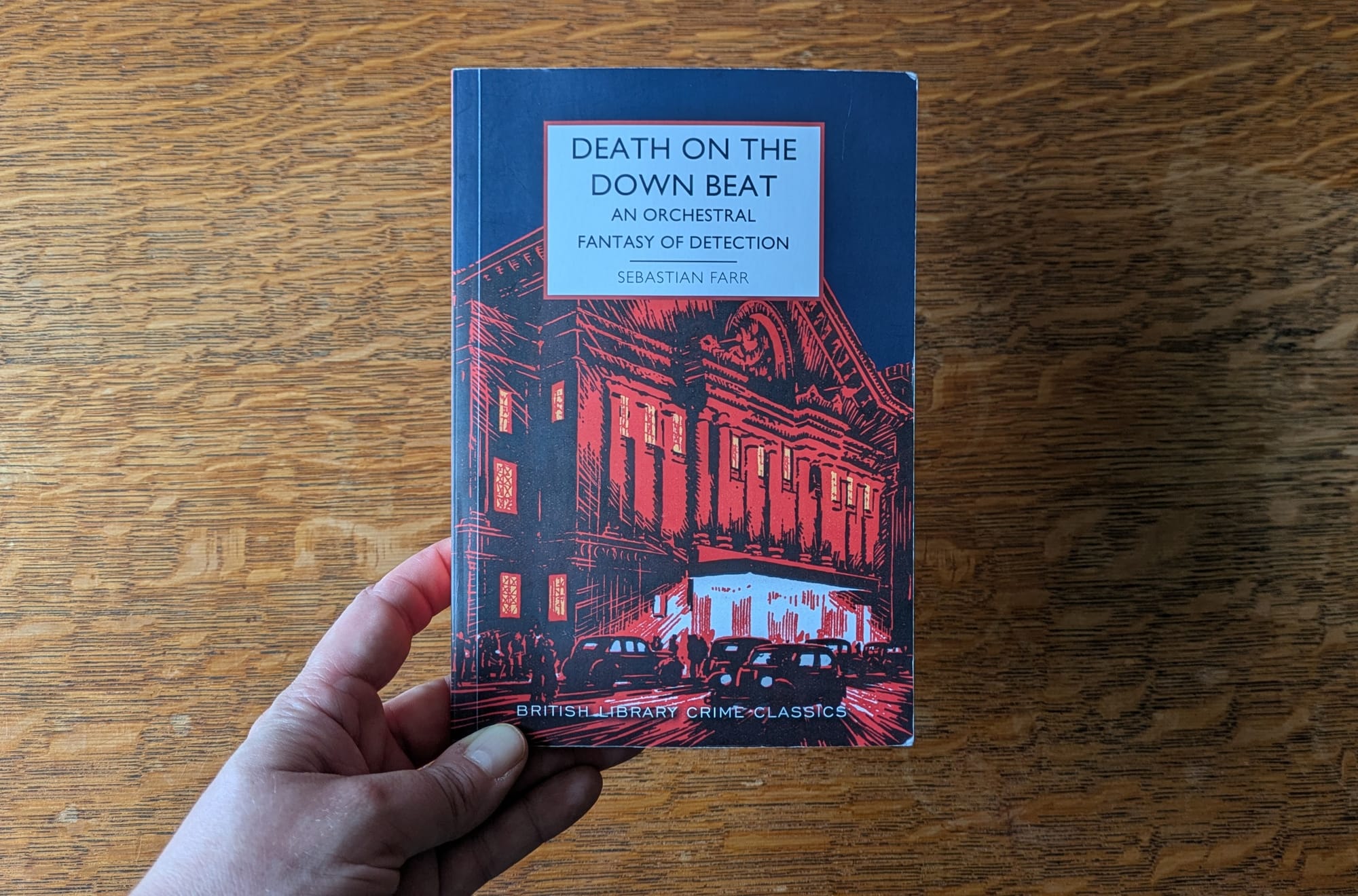
Carrying the excellent subtitle of "an orchestral fantasy of detection", this novel is formed from letters written by a Scotland Yard Inspector to his wife while he is away investigating the murder of an orchestra conductor mid-concert.
What makes it stand out to me, though, are the other elements that he includes to help her understand the case alongside his letters, such as an extract from the score for the music that the orchestra was playing at the fatal moment:

We also get a full list of all the orchestra personnel and their ranks:
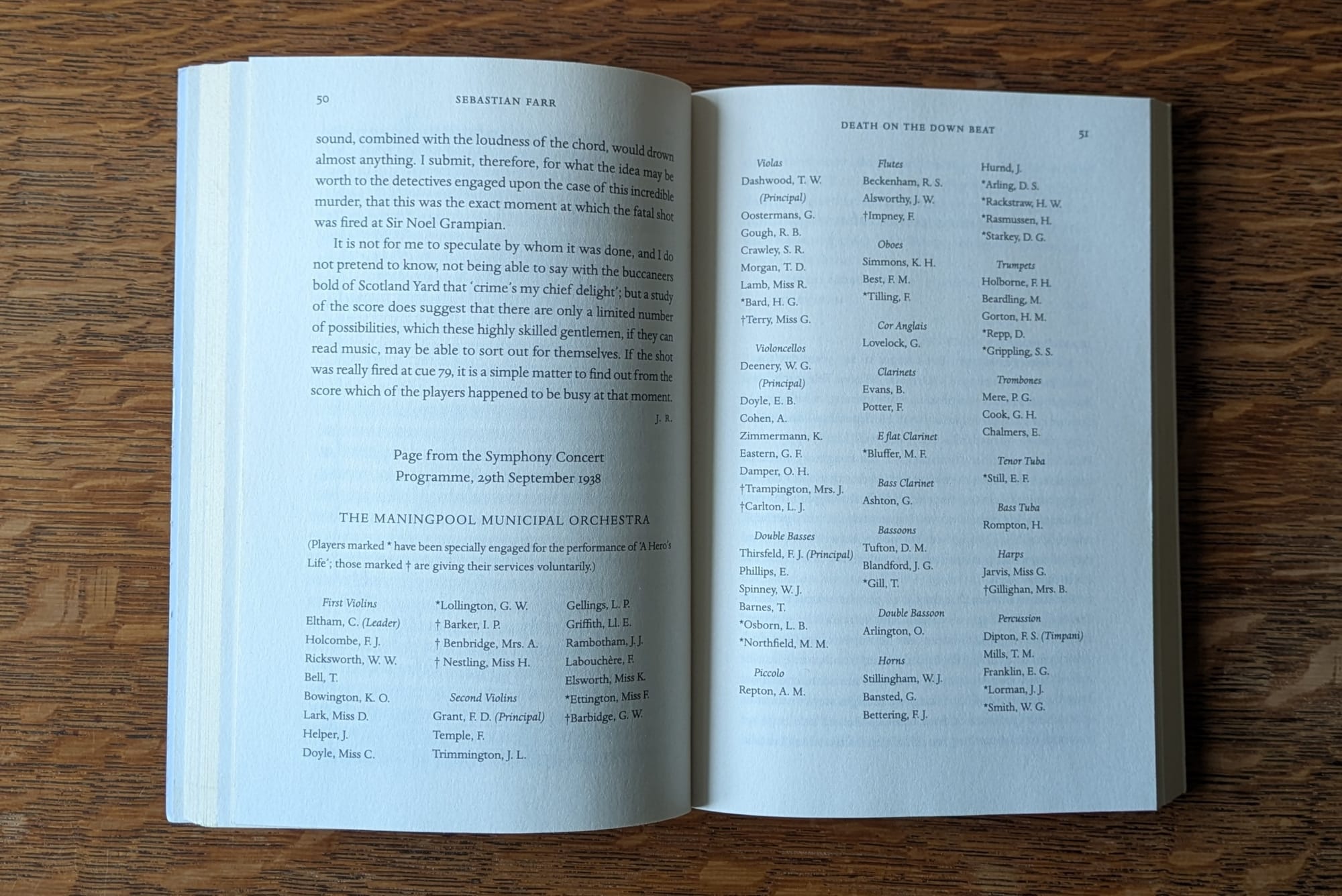
Plus this hand-drawn plan of their seating arrangements:
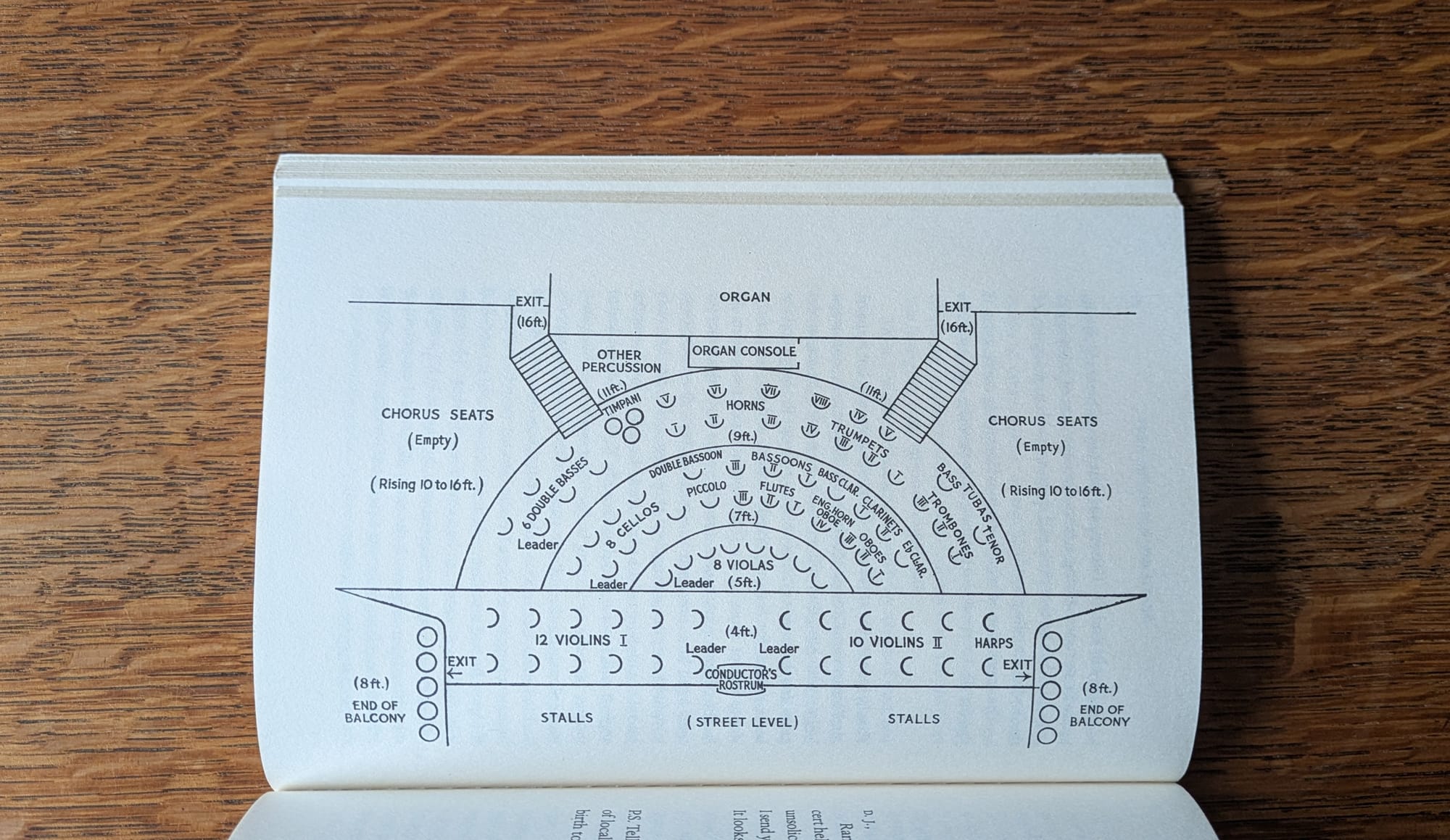
I'm also partial to the way Nicholas Blake uses the epistolary elements of his 1938 novel The Beast Must Die to bamboozle the reader.
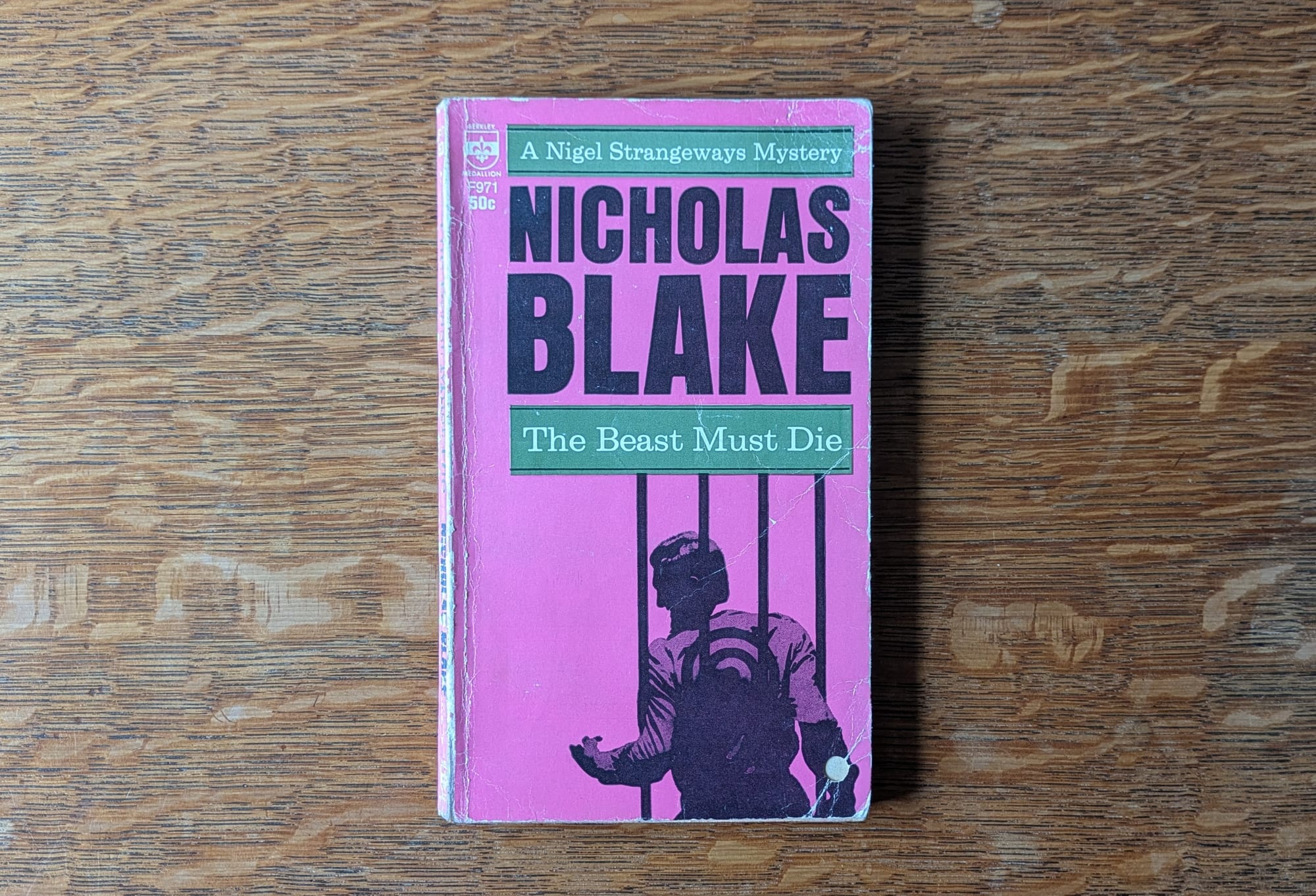
Look at this diaristic opening! It's so dramatic:
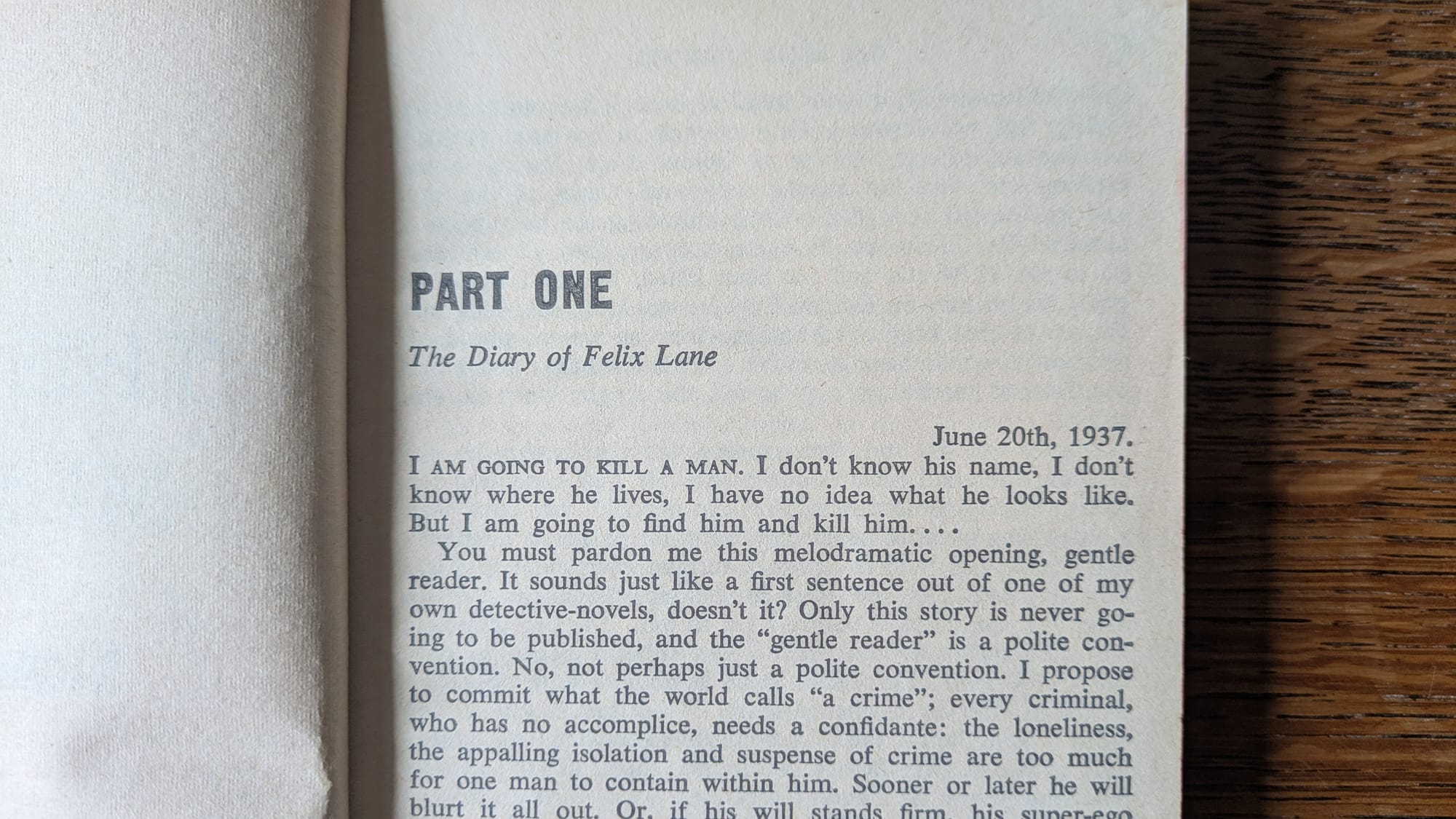
Pray, a moment for this rather fun cover for Busman's Honeymoon:
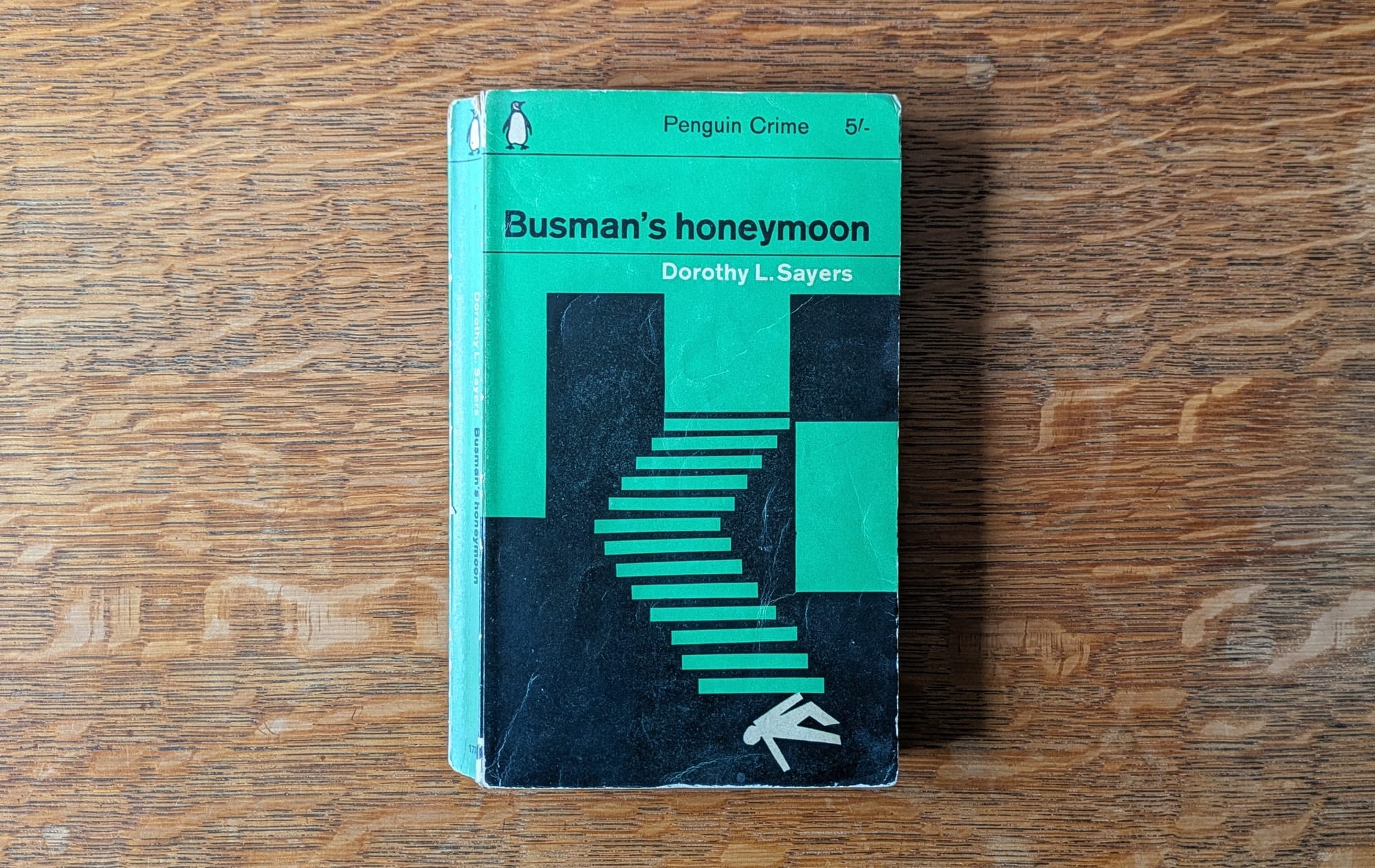
This isn't an entirely epistolary novel, of course, but the "Prothalamion" section at the start is told in this way via letters and diary extracts. Hopefully you can see some of the different elements on the page here broken up by italic headings:
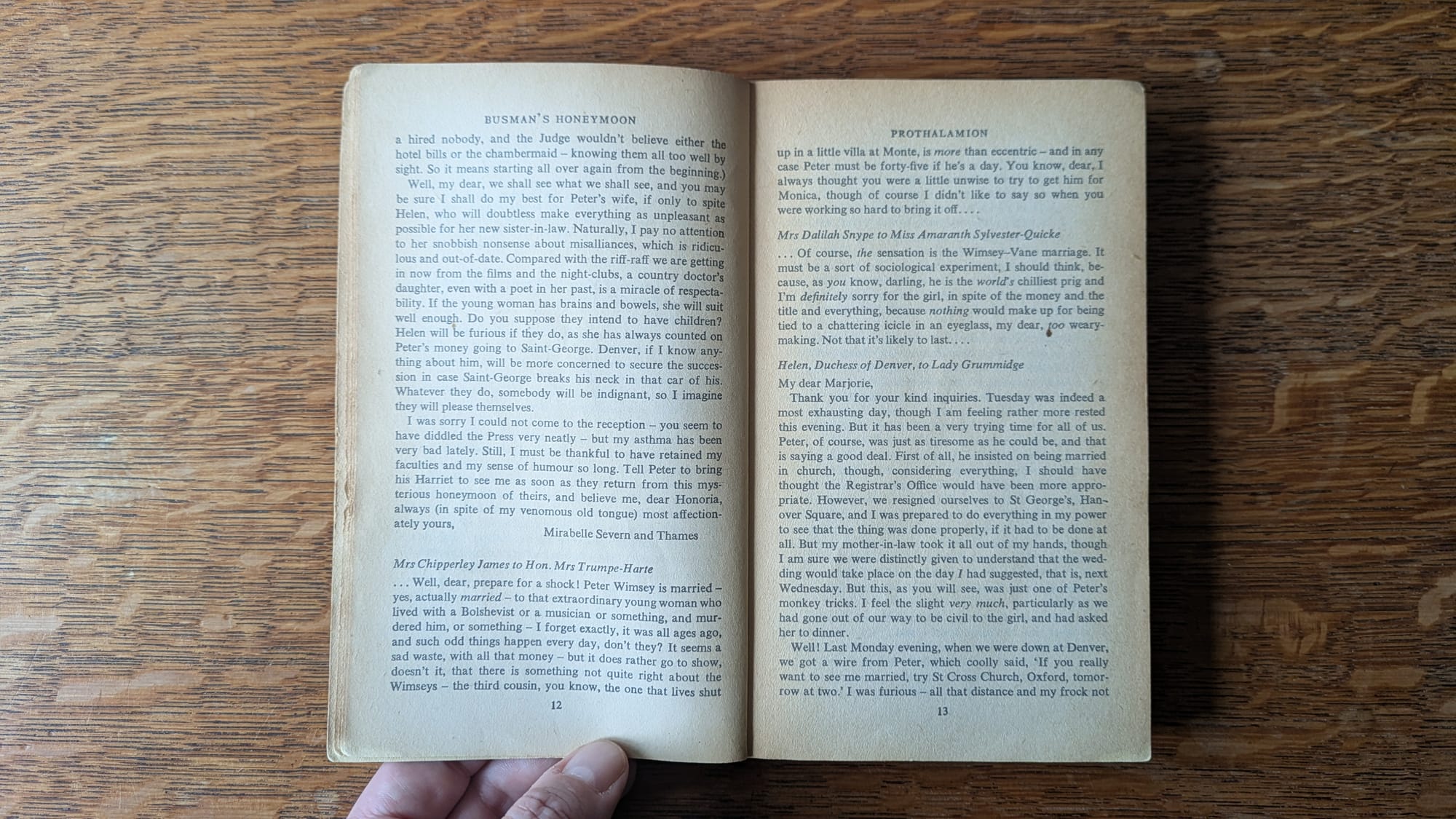
Finally, to end where we began, I wanted to highlight that you can get an edition of The Moonstone that is introduced by Dorothy L. Sayers (look for secondhand copies of the J. M. Dent & Sons edition from the 1940s):
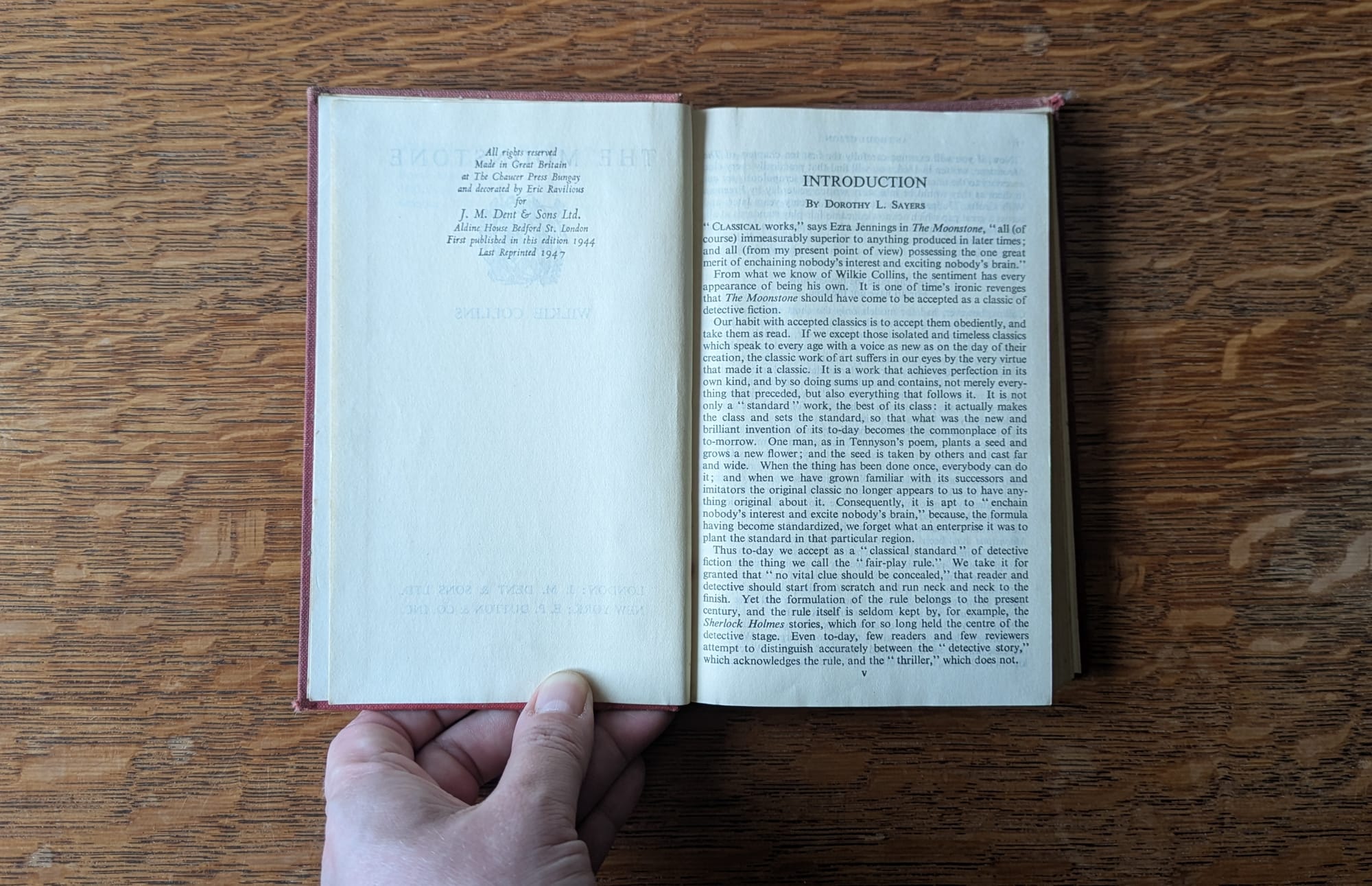
I think this one does a nice, understated job of introducing each new epistolary element of the narrative:
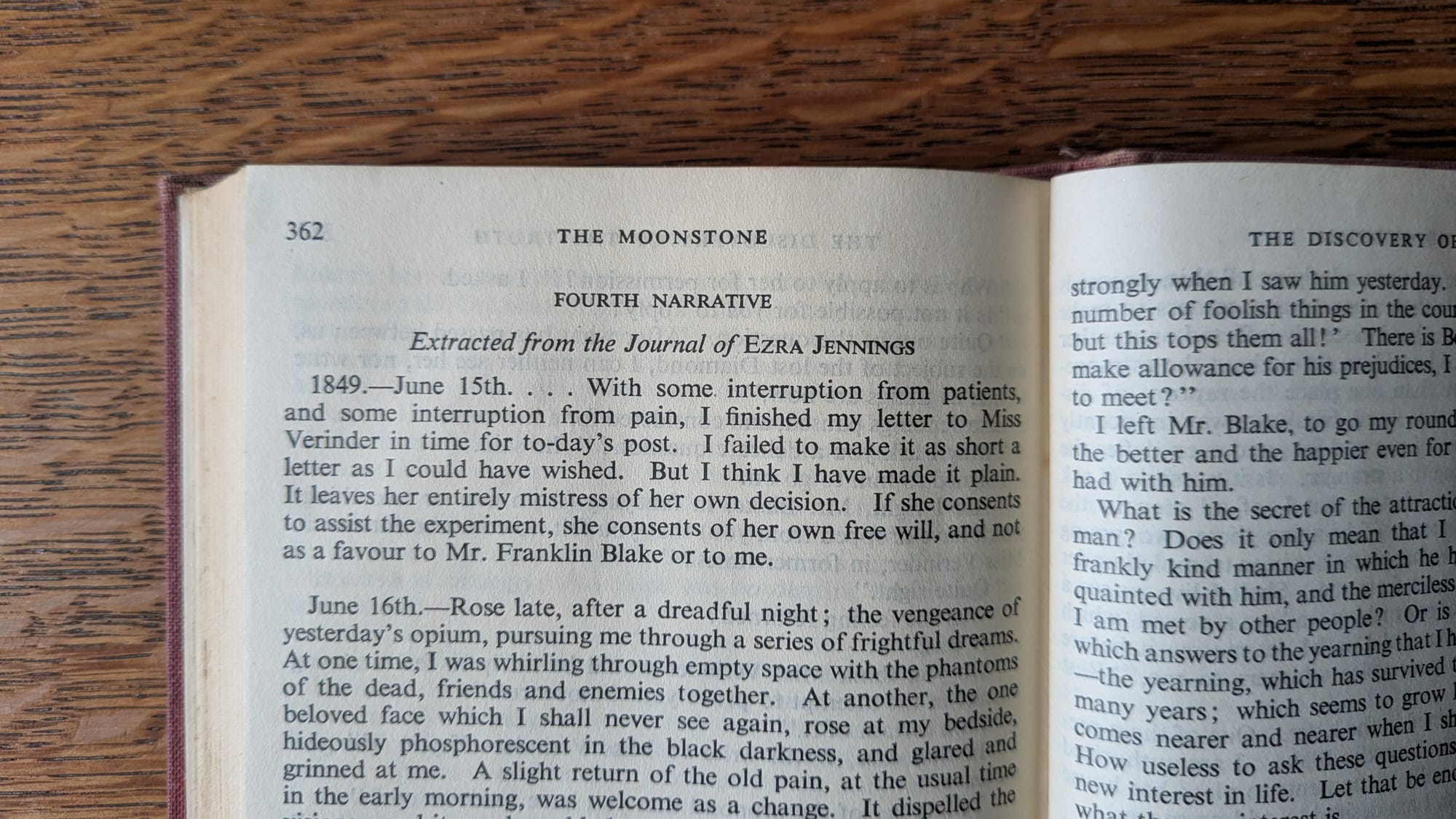
I hope you enjoy one or more of these books after listening to the episode, and perhaps find a renewed appreciation for the effort that goes into crafting a mystery this way.
Until next time,
Caroline
You can listen to every episode of Shedunnit at shedunnitshow.com or on all major podcast apps. Selected episodes are available on BBC Sounds. There are also transcripts of all episodes on the website. The podcast is now newsletter-only — we're not updating social media — so if you'd like to spread the word about the show consider forwarding this email to a mystery-loving friend with the addition of a personal recommendation. Links to Blackwell’s are affiliate links, meaning that the podcast receives a small commission when you purchase a book there (the price remains the same for you).
